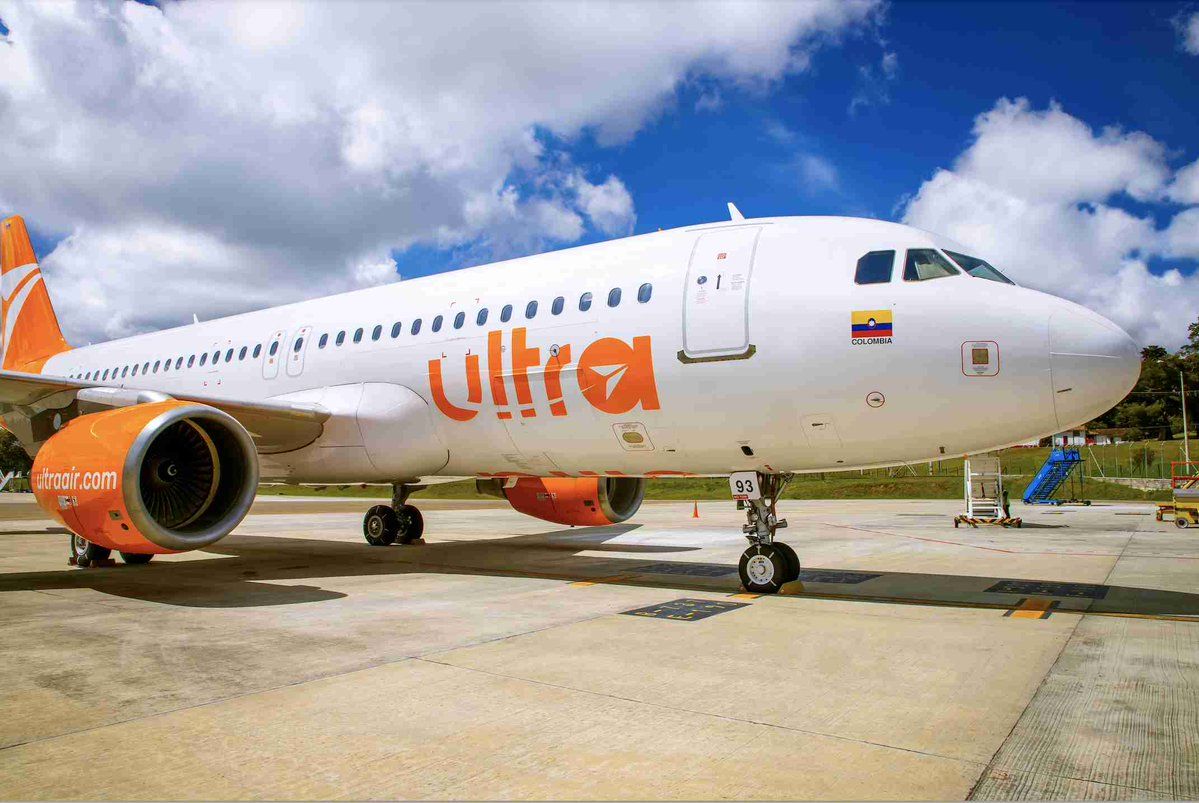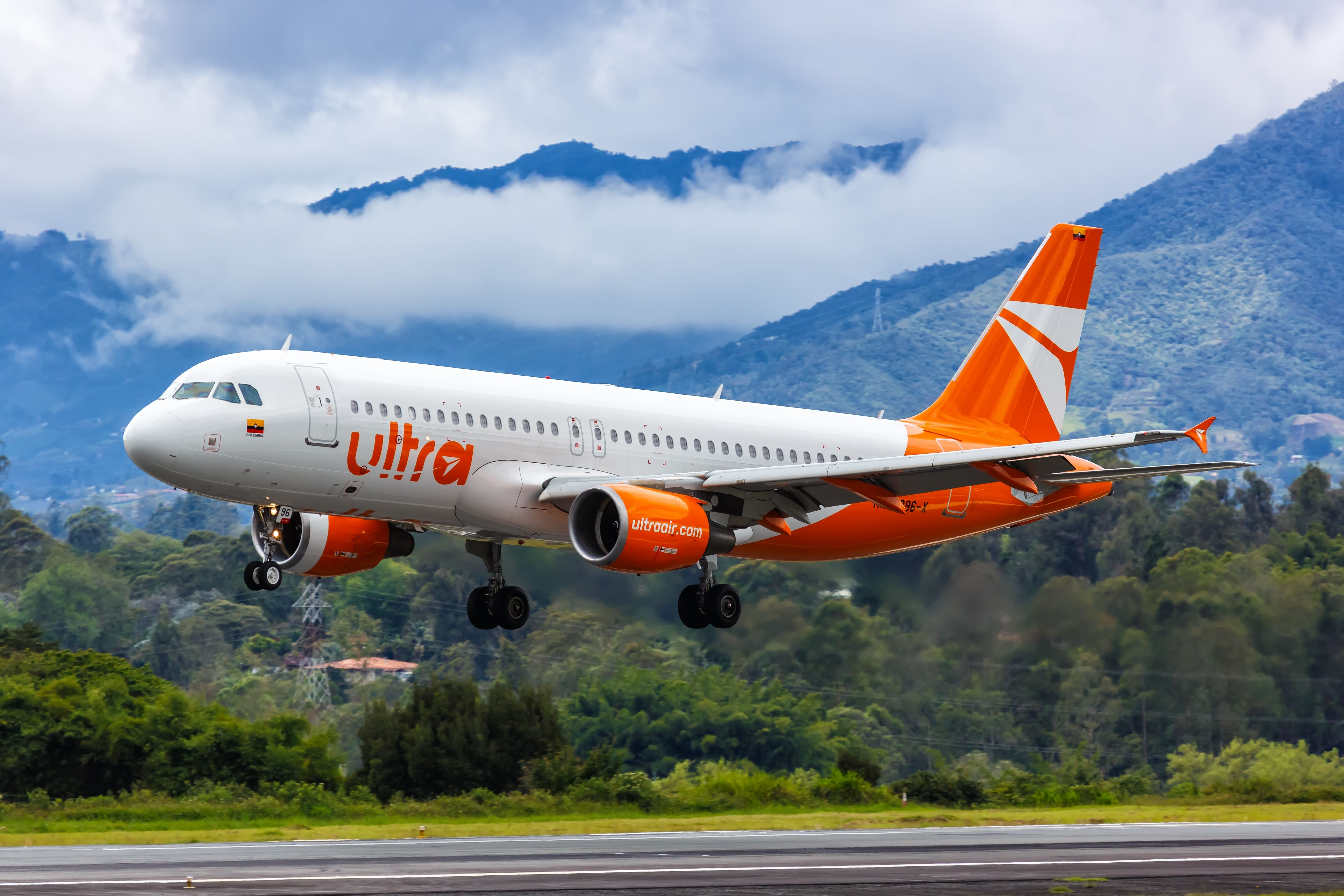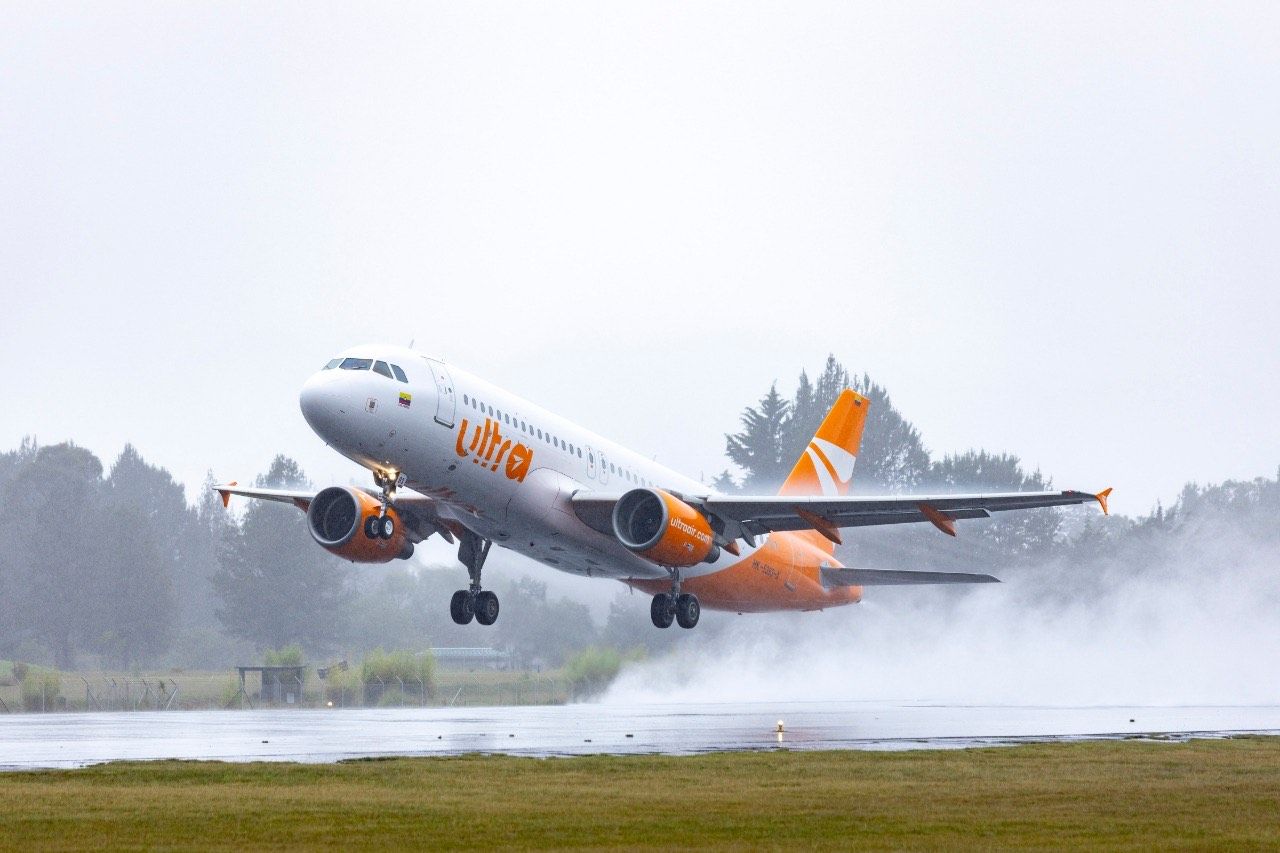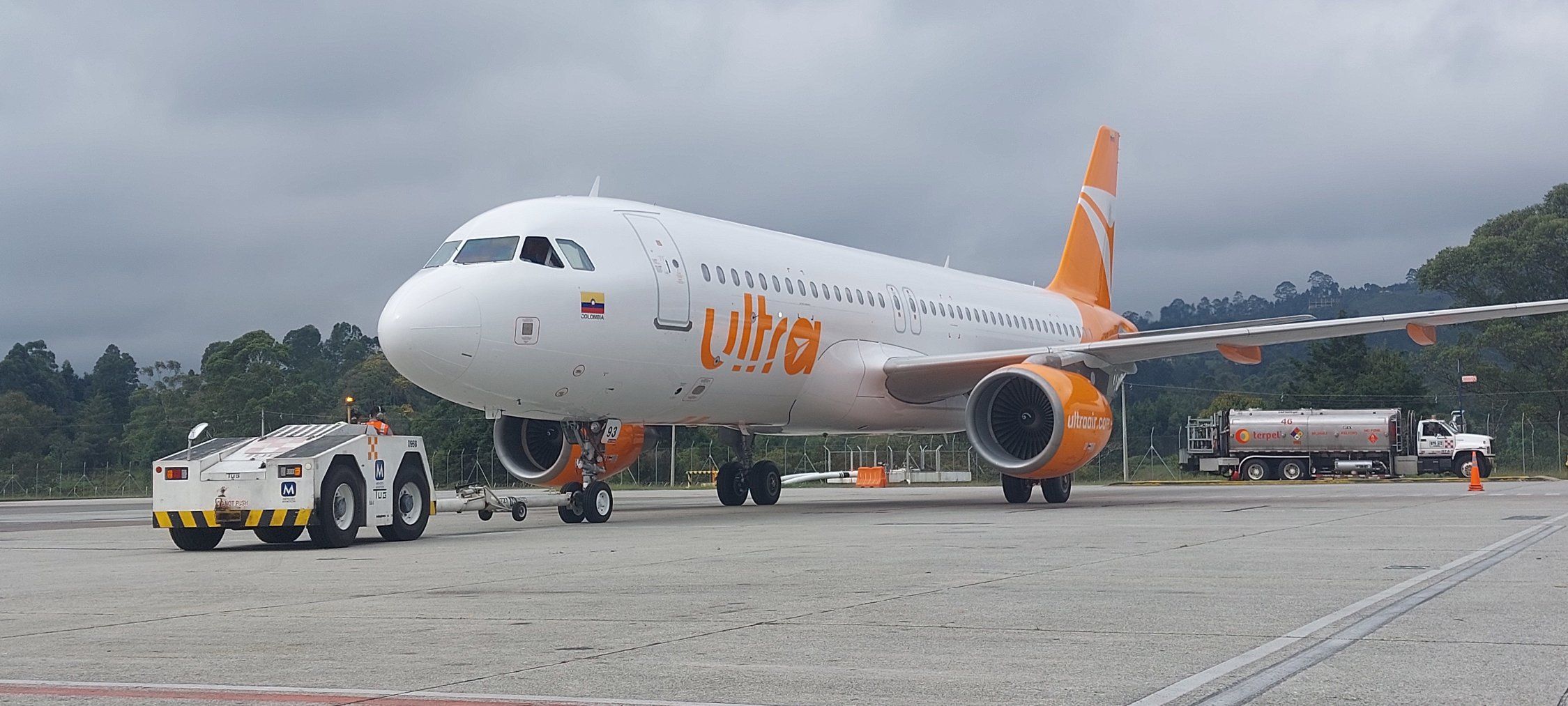Colombia's Ultra Air has ceased operations, becoming the country's second airline in a month to close down. With rumors about the airline's financial state circling for weeks, the carrier's fleet is now grounded with little prospect of a return to the air.
Second in a month
Following weeks of adverse speculation, Colombia's Ultra Air has ceased operations due to ongoing financial difficulties. The airline's failure comes just weeks after another Colombian carrier, Viva Air, closed down for similar reasons.
Just last week, Colombia's civil aviation authority (Aerocivil) released a statement saying that Ultra Air was facing severe liquidity problems and, as a result, was struggling to meet its short-term obligations. The airline ws believed to be on the verge of being in breach of agreements with major creditors, including fuel suppliers and aircraft leasing companies.
To compound the rumors of impending insolvency, the airline was revealed to be close to ceasing operations last week by the Colombian Minister of Transportation, Guillermo Reyes. The airline also had two aircraft grounded last week, which it claimed was due to maintenance issues.
Ultra Air denied the rumors
The recent dire warnings from the Colombian authorities about Ultra Air's position turned out to be well-founded. That said, despite the rumors and in an attempt to alleviate growing concerns, Ultra Air claimed to have matters in hand right up until the end.
The carrier swiftly issued a statement following the ominous comments by Guillermo Reyes, stating that the airline was capitalized with US$20 million to date and was expecting to receive more funds from domestic and foreign investors. It also claimed to have received fresh money just last Friday (March 24th).
The technique of trying to deflect negative attention away when facing critical financial woes is not without precedent. Ultra Air's CEO, William Shaw, was at the helm of the Mexican ultra-low-cost carrier Interjet in 2020 when it also ceased operations.
Back then, Interjet's management similarly denied being in a complex financial situation, despite having its fleet impounded and repossessed and being forced to cancel most of its flying program.
Since its launch in February 2022, and using Medellín International Airport (MDE) as its base, Ultra Air has operated a fleet of six Airbus A320ceo aircraft, with an average age of 15.1 years. These planes are leased from ALAFCO (two), Carlyle Aviation Partners (one), DAE Capital (one), and Park Aerospace Holdings (two).
Adding to the already mounting speculation, Ultra Air also was forced to announce last week that it had temporarily had two of its aircraft withdrawn from service. The airline said these two planes were unavailable due to "maintenance issues."
As a result, the carrier was forced to cancel flights and temporarily suspend all ticket sales between March 23rd and April 30th to "address the situation and reschedule the impacted passengers."
Rescue attempts aborted
Ultra Air has faced an uphill battle from its start a little more than a year ago. With a crowded domestic low-cost market and fares being cut for airlines to remain competitive, Ultra entered a market that was already close to saturation.
The airline operated around 464 weekly flights, according to data analytics firm, Cirium. All of its services were domestic, with the company's most important routes being Medellín-Bogota (40 weekly flights), Medellín-Cartagena (18), and Medellín-Santa Marta (14).
Find the latest South American aviation news here
With mounting losses while continuing to accrue debts, Ultra Air sought cash injections from possible investors over recent months to keep it in the air. The most significant of these was a potential deal with JetSMART of Chile.
JetSMART initially planned to purchase Ultra Air to establish routes in Colombia and utilize Ultra Air's infrastructure. However, following regular Aerocivil's approval for JetSMART to operate an additional 27 domestic routes in Colombia in its own right, it canceled the MOU it had signed to purchase Ultra Air.
The new approval allowed JetSMART to become a domestic carrier in Colombia without needing a partner. JetSMART plans to use Bogotá as its main hub in the country. It will look to utilize the Airbus A320 family to cover the 27 approved routes nationwide.
The tipping point for Ultra Air?
With JetSMART walking away from the MOU with Ultra Air, the latter's prospects looked decidedly bleak, with little chance of another credible rescue plan coming to fruition.
Over last weekend, Aerocivil ordered Ultra Air to implement a work plan and a mechanism to guarantee the passengers' rights in the event of a cease of operations from the company. Guillermo Reyes also announced that without such, and given its critical financial insecurity, Ultra Air could stop flying by Easter.
Reorganization of the Colombian airline scene
Despite its protestations to the contrary, the Colombian authority's warnings about Ultra Air have turned out to be accurate. With the loss of a second carrier within a month, the aviation scene in Colombia is undergoing much-needed consolidation and reorganization.
By the end of this year, the country's domestic, commercial airline market could see a strong merger between Avianca and the remains of Viva Air (with a decision on this believed to be imminent), a new airline (JetSMART) entering the market, and the loss of both Viva Air and now Ultra Air.
What are your thoughts on the failure of Ultra Air? Tell us more in the comments.
Sources: Twitter, ch-aviation.com




